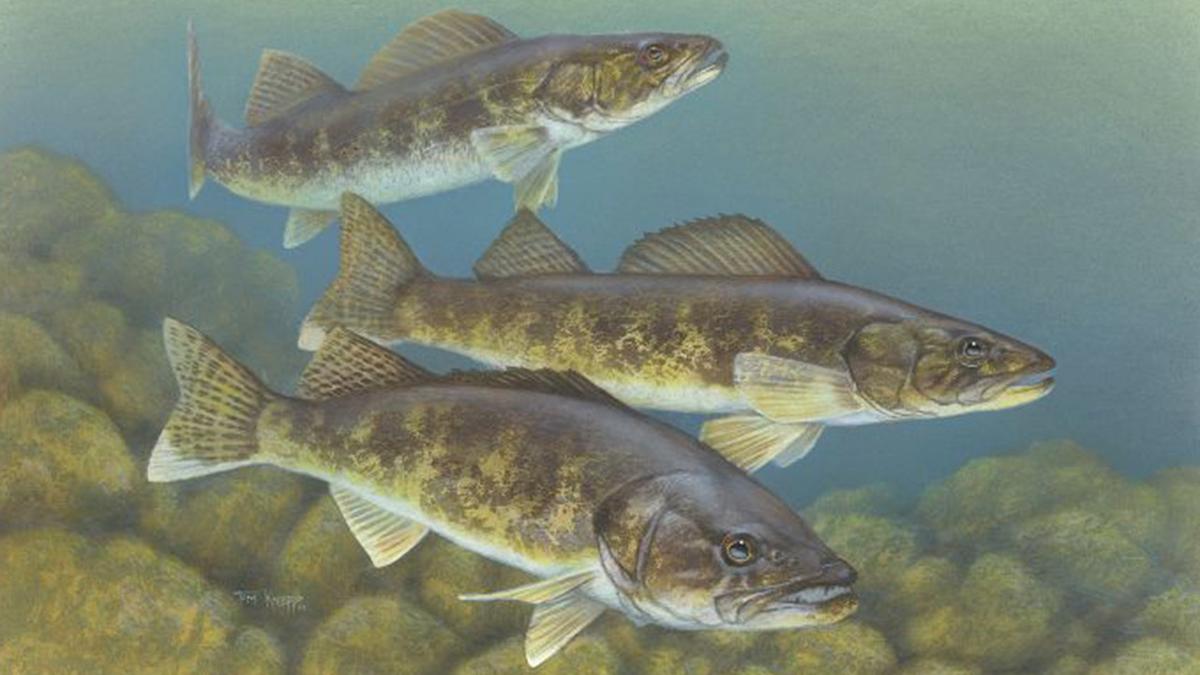Minnesota Sea Grant announces the release of a report from the state’s first-ever food-fish aquaculture workshop at which Sea Grant brought aquaculture experts from industry, government and academia together in 2017 to begin envisioning the state’s aquaculture future.
More than 90 percent of all fish and seafood sold in the United States is imported. About half of all imports are wild-caught and half come from aquaculture. Food-fish aquaculture has the potential to help correct the current trade imbalance in fish and seafood and help the economy if the industry is developed appropriately.
New trends and technologies in aquaculture and how they may affect the industry in Minnesota are highlighted in “Food-Fish Aquaculture in Minnesota: A Synthesis of the 2017 Workshop,” available online at www.seagrant.umn.edu.
“The goal of the workshop was to answer the question, “Can an environmentally responsible and sustainable food-fish aquaculture industry be established in Minnesota?”” said Don Schreiner, Minnesota Sea Grant fisheries specialist and workshop organizer.
More than 40 experts gathered to exchange information and start the discussion on food-fish aquaculture in Minnesota. The workshop was organized around three themes: Prioritizing species and production strategies for food-fish aquaculture in Minnesota, identifying research needs and information gaps, and examining policy and regulatory issues.
“It is great to see a workshop like this where both industry and government work together in the early stages of planning to get ahead of issues that came up in other states,” said Carole Engle, manager of Engle-Stone Aquatic$ LLC and executive editor of the Journal of the World Aquaculture Society.
Unsurprisingly to Minnesotans, workshop participants said walleye would be their desired first choice food-fish species. Shrimp and Atlantic salmon were close second choices. The most popular fish-rearing technique discussed was recirculating aquaculture systems, called RAS, in which water is initially warmed, then filtered and recirculated. RAS systems enable fish to grow year-round and the cost-savings resulting from reusing warmed water may help offset high start-up costs.
Participants said a market study to determine what fish people would buy, how much they would pay, and how many aquaculture businesses the state could support was an important first step. Development of year-round broodstock for selected fish species and formulation of nutritious feed were research topics most participants said were high priorities.
“Our main concern is risks to wild fish stocks and the ecosystems that support them,” said Don Pereira, Minnesota Department of Natural Resources fisheries chief and workshop participant. “However, we are supportive of the aquaculture industry if regulations are followed and new technologies are implemented that greatly reduce the risk to our aquatic environments.”
Minnesota Sea Grant Minnesota is working with the Minnesota Department of Natural Resources to help communicate what information is required for start-up aquaculture businesses. Sea Grant is also pursuing funding for a Minnesota-based aquaculture market study, which was one of the top recommendations from workshop participants.
“One of Minnesota Sea Grant’s roles is to assist with the responsible development of food-fish aquaculture in Minnesota by transferring the science surrounding the industry to the public and facilitating the interaction between all the interested parties,” said Minnesota Sea Grant Director John A. Downing. “Now is the right time to consider food-fish aquaculture for Minnesota as it could provide a safe and known source of protein for consumers, fit with concepts of the local-food movement and create jobs.”
ADDITIONAL INFORMATION:
The aquaculture workshop summary, which captures the main points discussed by presenters, panel members and participants and videos of keynote presentations are online at: www.seagrant.umn.edu/aquaculture/workshop2017.
